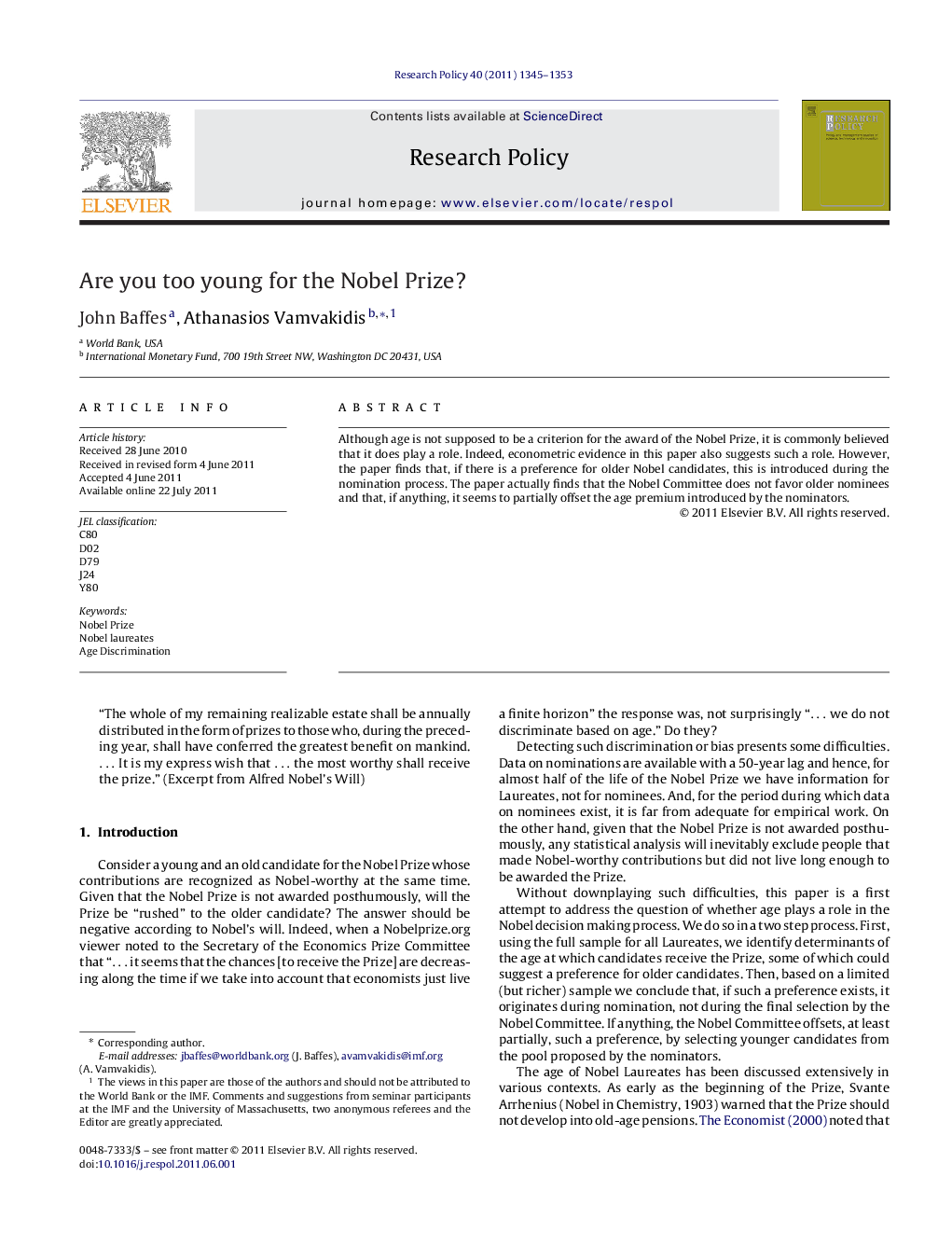| Article ID | Journal | Published Year | Pages | File Type |
|---|---|---|---|---|
| 985041 | Research Policy | 2011 | 9 Pages |
Although age is not supposed to be a criterion for the award of the Nobel Prize, it is commonly believed that it does play a role. Indeed, econometric evidence in this paper also suggests such a role. However, the paper finds that, if there is a preference for older Nobel candidates, this is introduced during the nomination process. The paper actually finds that the Nobel Committee does not favor older nominees and that, if anything, it seems to partially offset the age premium introduced by the nominators.
Graphical abstractAverage age of Physics and Chemistry Laureates and non-Laureates at year of nomination, 1901–1950: if there is a preference for older Nobel candidates this is introduced during nomination.Figure optionsDownload full-size imageDownload as PowerPoint slideHighlights► Econometric evidence suggests that age could play a role in the Nobel decision. ► The data indicate a preference for older Nobel candidates during nomination. ► Econometric evidence suggests that the Nobel Committee may offset part of an age premium introduced by the nominators.
